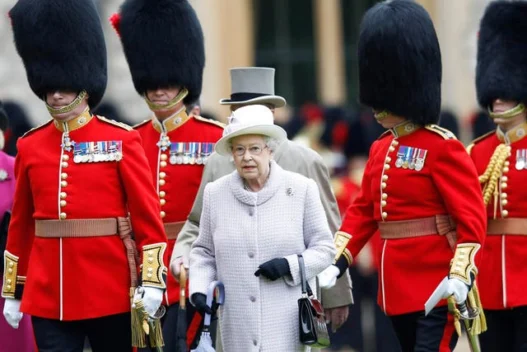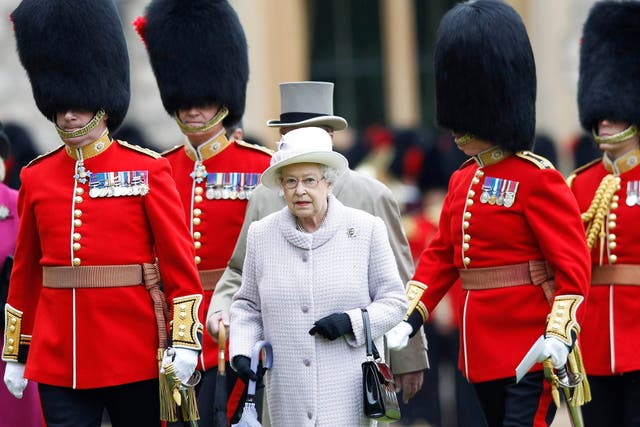The Royal Guard, often seen standing stoically outside Buckingham Palace in their iconic red coats and bearskin hats, is one of the most recognizable symbols of the British monarchy. But beyond their ceremonial duties, these soldiers are highly trained infantry members of the British Army. If you’ve ever wondered, “How much do Royal Guards make?” or what their job entails, this guide has you covered.
In this article, we’ll explore the salary of Royal Guards, their duties, living conditions, and the skills required to join this prestigious regiment. Whether you’re considering a career as a Royal Guard or simply curious about their role, read on to learn more.
How Much Do Royal Guards Make?
The salary of a Royal Guard depends on their rank and experience within the British Army. Here’s a breakdown of average salaries for roles within the Royal Guard:
- Infantry Soldier: £18,932 per year
- Average Soldier Salary (UK-wide): £19,720 per year
- Army Officer: £28,556 per year
Salaries increase with rank and seniority. For example, a Corporal or Sergeant can expect to earn more than a Private. Additionally, soldiers may receive bonuses for deployments or special assignments.
What Are the Royal Guards?
The Royal Guard, also known as the Queen’s Guard, is a ceremonial unit tasked with protecting the official royal residences, including Buckingham Palace and Windsor Castle. However, their role extends far beyond ceremonial duties.
The Royal Guard comprises soldiers from five elite infantry regiments:
- Grenadier Guards
- Coldstream Guards
- Scots Guards
- Irish Guards
- Welsh Guards
These regiments are among the oldest and most prestigious in the British Army. While their ceremonial role is highly visible, they are also trained combat soldiers who may be deployed on operational tours.
What Does a Royal Guard Do?
The duties of a Royal Guard can be divided into two main categories: ceremonial and operational.
Ceremonial Duties
- Standing Guard: Royal Guards stand sentry outside royal residences for 6–8 hours at a time, regardless of weather conditions.
- Changing of the Guard: This formal ceremony, which involves a handover between two guards, is a popular tourist attraction.
- Public Events: Royal Guards participate in state occasions, parades, and royal ceremonies.
Operational Duties
- Combat Roles: Royal Guards are trained infantry soldiers who may be deployed to war zones or conflict areas.
- Humanitarian Missions: They may assist in disaster relief, evacuation efforts, or other humanitarian operations.
- Training and Drills: Guards undergo rigorous training to maintain their combat readiness and ceremonial precision.
Living Conditions and Daily Life
Royal Guards live and work in a variety of settings, depending on their duties:
- Barracks: Most Guards live in military barracks when stationed in the UK.
- Subsidized Housing: The British Army offers subsidized housing for soldiers and their families.
- Mess Halls: Meals are heavily subsidized in military dining facilities.
A typical day for a Royal Guard on ceremonial duty involves standing guard for 6–8 hours, participating in drills, and maintaining their uniform and equipment. Despite the ceremonial nature of their role, Guards must remain vigilant and prepared for any security threats.
Skills Required to Become a Royal Guard
Becoming a Royal Guard requires a unique combination of physical fitness, discipline, and teamwork. Here are the key skills and attributes needed:
1. Physical Fitness
- The role demands endurance, strength, and the ability to stand for long periods in all weather conditions.
2. Teamwork and Camaraderie
- Guards must work closely with their unit, whether during ceremonial duties or combat operations.
3. Leadership Skills
- Leadership is essential for those seeking promotion to higher ranks, such as Corporal or Sergeant.
4. Communication Skills
- Clear and effective communication is crucial, especially in high-pressure situations.
5. Discipline and Attention to Detail
- Guards must maintain impeccable standards in their appearance, drills, and duties.
How to Become a Royal Guard
To join the Royal Guard, you must first enlist in the British Army and pass the British Army Recruit Battery (BARB) test. This test determines your suitability for combat or support roles.
Steps to Join:
- Meet the Requirements: Be at least 16 years old (with parental consent) or 18+ to join as an adult.
- Pass the BARB Test: This assesses your cognitive and physical abilities.
- Complete Basic Training: Undergo rigorous training at an Army training center.
- Join an Infantry Regiment: After training, you can apply to join one of the five Guards regiments.
FAQs About Royal Guards
1. Do Royal Guards carry real weapons?
Yes, Royal Guards carry ceremonial weapons, but they may also carry live ammunition during high-security alerts.
2. How long is a Royal Guard’s shift?
A typical shift lasts 6–8 hours, during which Guards must remain standing and vigilant.
3. Can women join the Royal Guard?
Yes, women can join the Royal Guard. The British Army has been fully integrated since 2018.
4. What is the Changing of the Guard?
This is a formal ceremony where one guard unit replaces another. It takes place daily at Buckingham Palace and is a popular tourist attraction.
Conclusion: A Rewarding and Prestigious Career
Becoming a Royal Guard is a unique and prestigious career that combines ceremonial duties with the rigor of military service. While the salary may not be the highest, the role offers unparalleled opportunities for personal growth, travel, and serving your country.
If you’re considering a career as a Royal Guard, focus on building your physical fitness, discipline, and teamwork skills. With dedication and hard work, you could join the ranks of one of the most iconic military units in the world.
Call-to-Action:
Interested in a career with the British Army? Check out our free guides on military careers and tips for passing the BARB test to get started on your journey today!





















